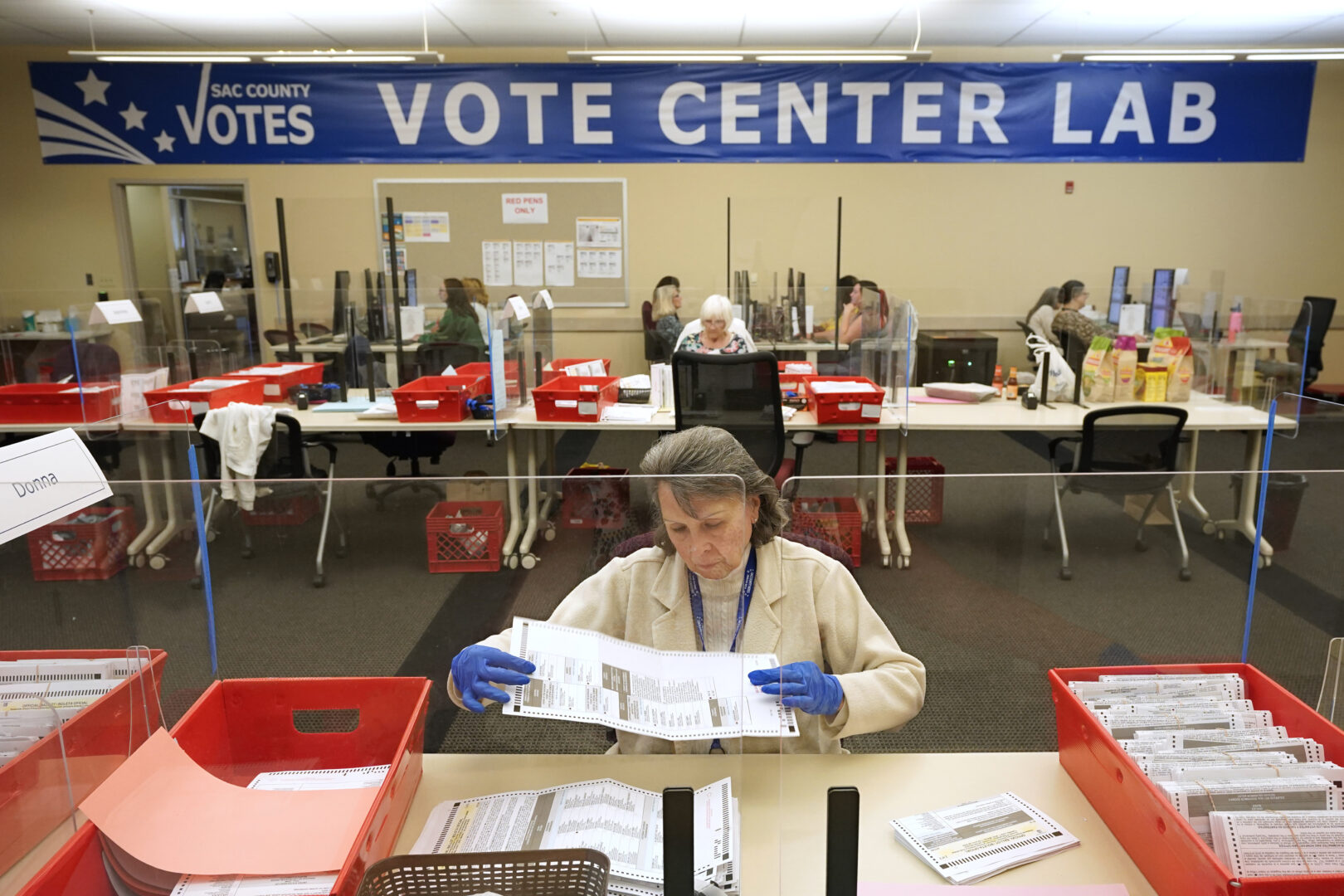Top stories of 2022: How did election conspiracy theorists affect the …
January 2, 2023 | 5:00 AM
- Robby Brod

Rich Pedroncelli / AP Photo
FILE – Election worker Donna Young inspects a mail-in ballot for damage at the Sacramento County Registrar of Voters in Sacramento, Calif., June 3, 2022. Unlike in many other countries, elections in the U.S. are highly decentralized, complex and feature a long list of races on the ballot, from president or Congress all the way down to local ballot measures or town council seats. Rules also vary greatly by state. Some give local election offices several weeks before Election Day to process mailed ballots, which includes steps that may include checking signatures or ID information
In the weeks leading up to Election Day, the Pennsylvania Department of State issued reminders that vote counting could take days or weeks — due to the number of mail-in ballots submitted.
But at his victory party, midstate Republican Congressman Scott Perry – who encouraged efforts to baselessly overturn the 2020 presidential election – refused to say voters should trust the November results.
“And now all of a sudden in 2022, we might have to wait – we did wait – weeks in the primary, and maybe, we don’t know what we’re going to deal with this election,” Perry said. “So again, it just doesn’t seem like we’re heading in the right direction.”
Results from Pennsylvania’s May primary were delayed due to lawsuits – filed by election deniers – that challenged mail-in ballots lacking signatures on their outer envelopes.
Related Stories
The lawsuits uncovered no evidence of fraud, and failed to change any results, but the commonwealth was unable to fully certify results until they were resolved.
All of this contributed to 2022 being a year that saw a near-constant debate over the trustworthiness of the election system, despite a lack of any substantial problems being proved.
Post-election, more lawsuits held up the certification of results.
Berks County delays state certification
The Berks County Republican Committee filed two petitions in the Court of Common Pleas calling for a hand re-count based on unsubstantiated claims of machines switching votes from Republican candidates to Democrats.
The group’s attorney is Eric WInter.
“We’ve had dozens of complaints about issues with the election that we want to get resolved. And we believe the only way to resolve this is a recount and some of the other relief that we requested,” he said.
That relief included a request to inspect voting machines, signature verification on mail-in ballots, and a statutory disclosure of voter info.
A judge tossed both of the petitions Dec. 6 and the county certified their results the following day – 10 days past the state deadline to do so. .
York County election leaders pre-empted election challenges when they met with Audit the Vote PA — a group that continues to falsely question the legitimate results of the 2020 election.
Before voters went to the polls, the county agreed to hand re-count three precincts chosen at random.
President Commissioner Julie Wheeler said it was an effort to increase trust in the electoral process.
“One of the core values of York County government is being transparent. And this is just an example of us living up to that value. Walkin’ the talk and being transparent with our voters.”
The re-count results were identical to those tabulated by voting machines, so the county certified their results the next day.
In total, legal challenges were filed in 172 voting precincts across 27 of Pa.’s 67 counties. This led to nine counties missing the deadline to certify statewide election results for governor, lieutenant governor, U.S. Senate and some state legislative districts.
Bucks County – the last county to certify its results – finally sent its numbers to the Department of State on Dec. 8.

